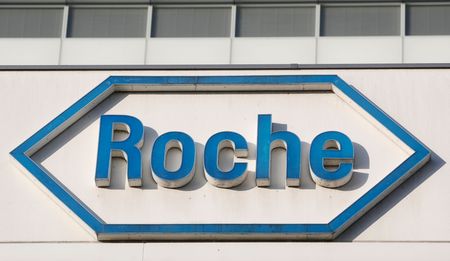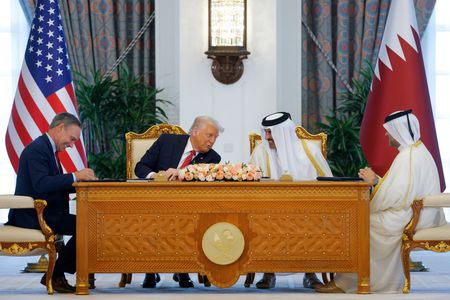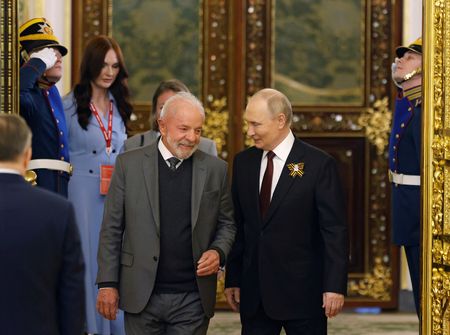By Maggie Fick
LONDON (Reuters) – U.S. President Donald Trump’s executive order on drug pricing threatens Roche’s planned $50 billion investment in the United States, the company said on Wednesday.
Trump’s order, signed on Monday, directs drugmakers to lower prices of brand-name medicines to align with those in other wealthy nations. Analysts and legal experts say the policy would be difficult to implement.
“Should the proposed EO (Executive Order) go into effect, Roche’s ability to fund the significant investments previously announced in the U.S. will be in question,” the company said in a statement.
Roche said it did not expect the executive order to affect its business in 2025, and said it would continue engaging with the Trump administration and Congress.
Roche in April announced it would invest $50 billion in the U.S. over the next five years, creating more than 12,000 jobs.
It is among several drugmakers, including Eli Lilly, Johnson & Johnson and Novartis, to announce large-scale U.S. investments in response to Trump’s push to onshore pharmaceutical manufacturing.
Novartis, another Switzerland-based big pharma company, said on Wednesday it had no plans to alter its U.S. investment strategy in response to the executive order.
“We are working both in the U.S. and Europe to advocate for necessary changes, including reducing the role of PBMs (pharmacy benefit managers) and correcting significantly low pricing in Europe,” the company said in an emailed statement to Reuters. “These discussions will take time, and we do not expect any changes to happen quickly.”
In the U.S., drug prices are shaped by complex negotiations involving PBMs that act as middlemen between drugmakers and health insurers and have been criticised for inflating costs. In Europe, countries generally have public health systems that negotiate directly with manufacturers and keep costs down.
Since taking office, Trump has repeatedly threatened to levy tariffs on medicines and his administration is conducting an investigation into imports of pharmaceuticals in an effort to impose tariffs on national security grounds.
(Reporting by Maggie Fick; Editing by David Goodman and Aidan Lewis, Kirsten Donovan)











